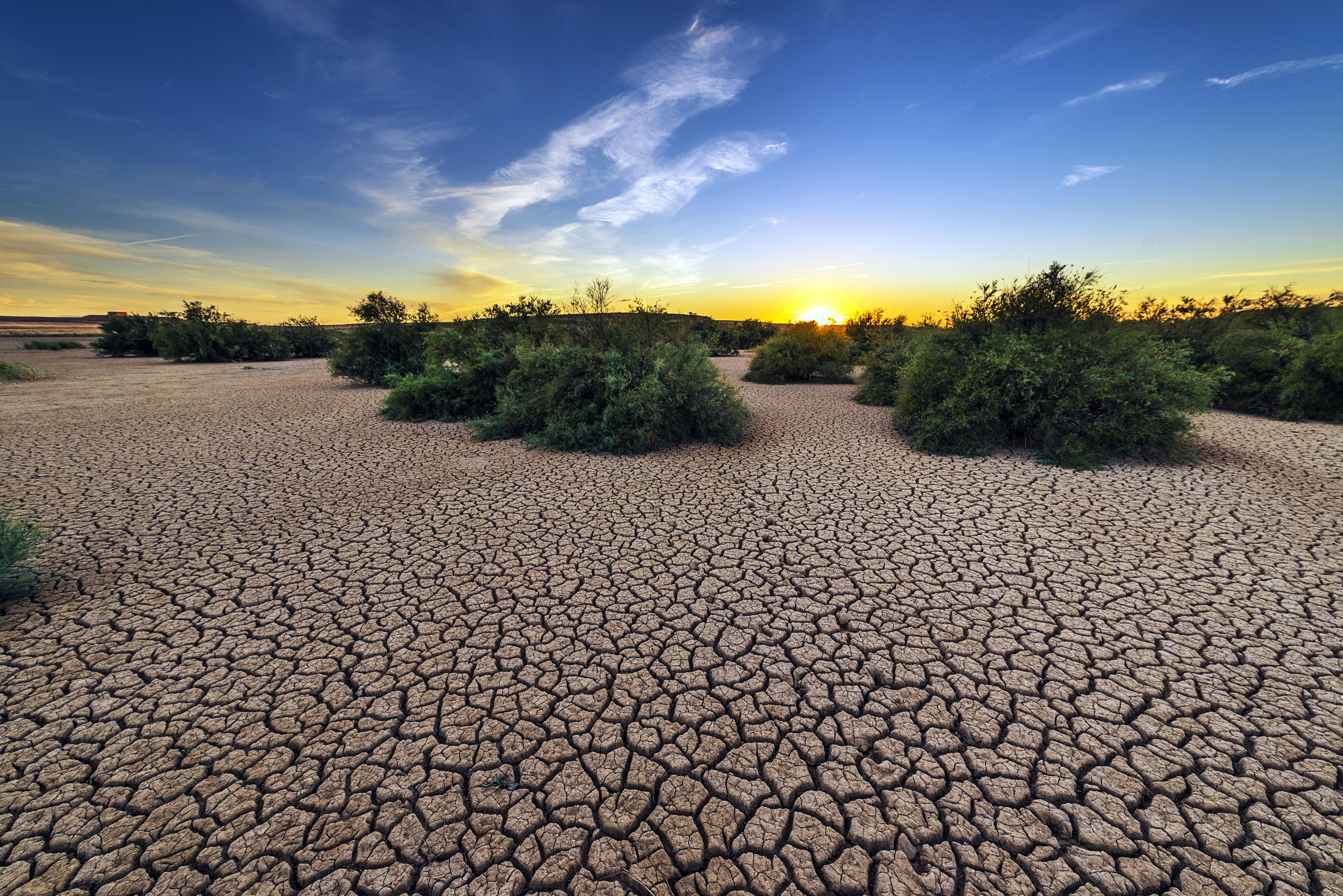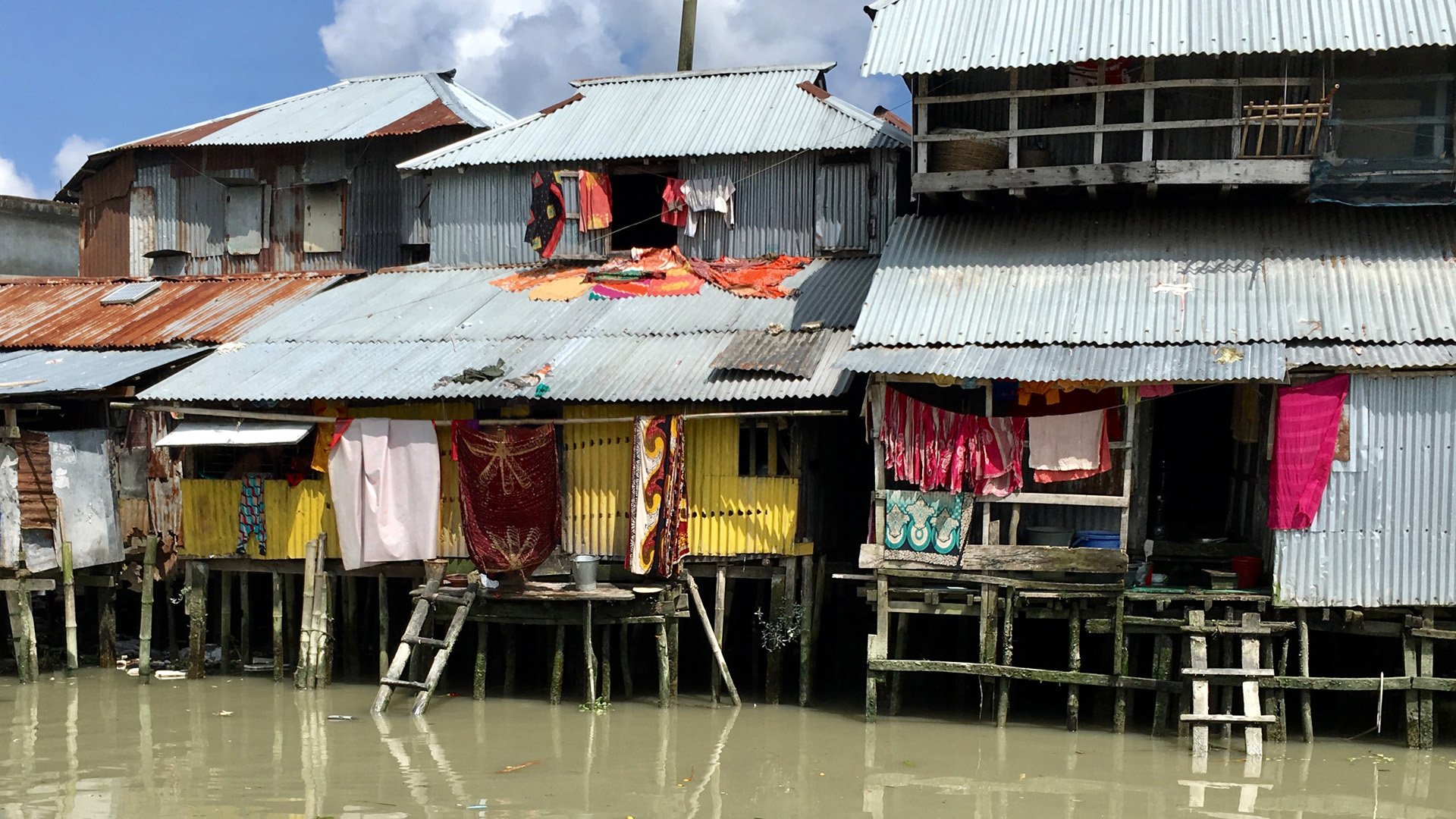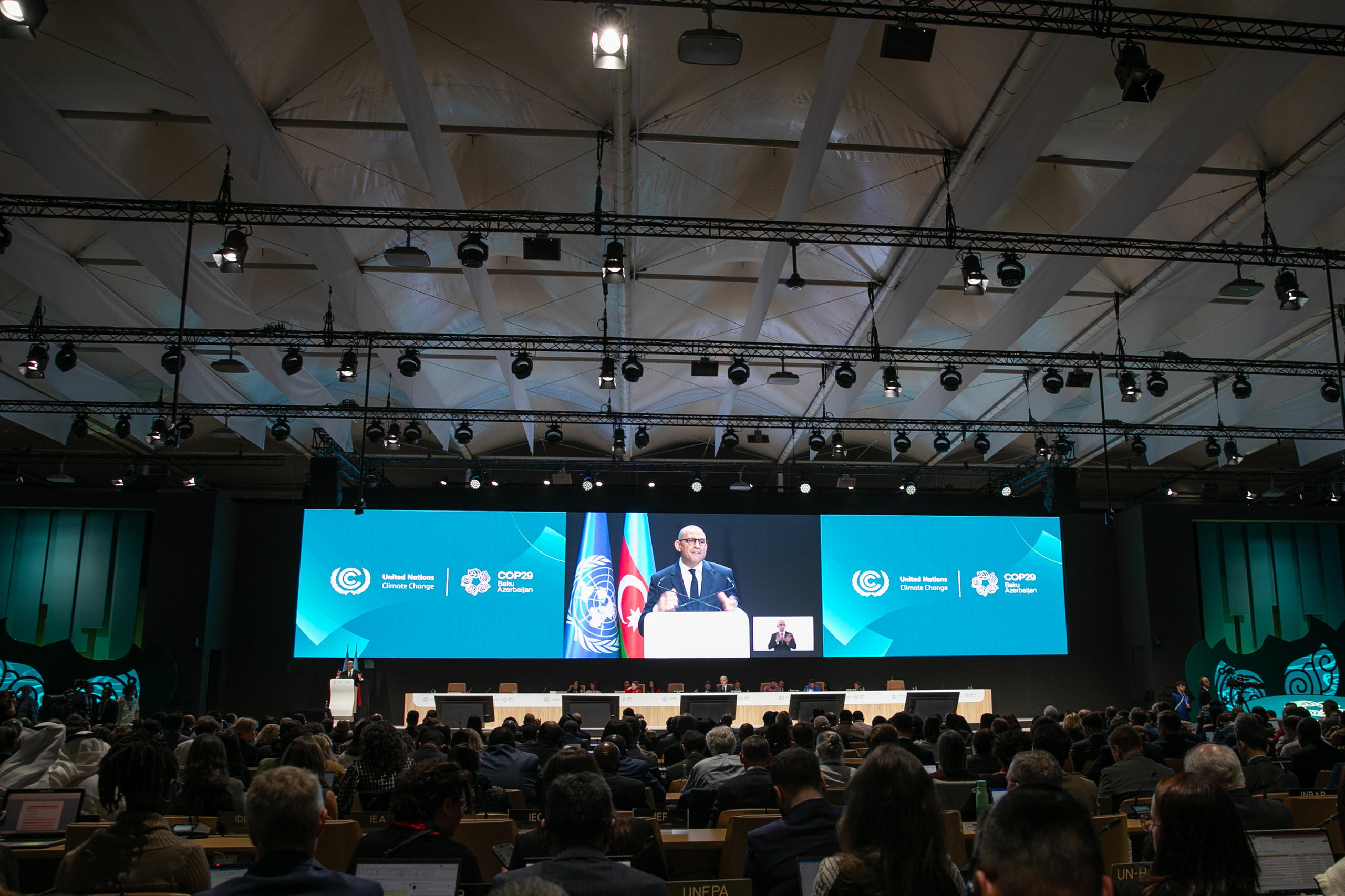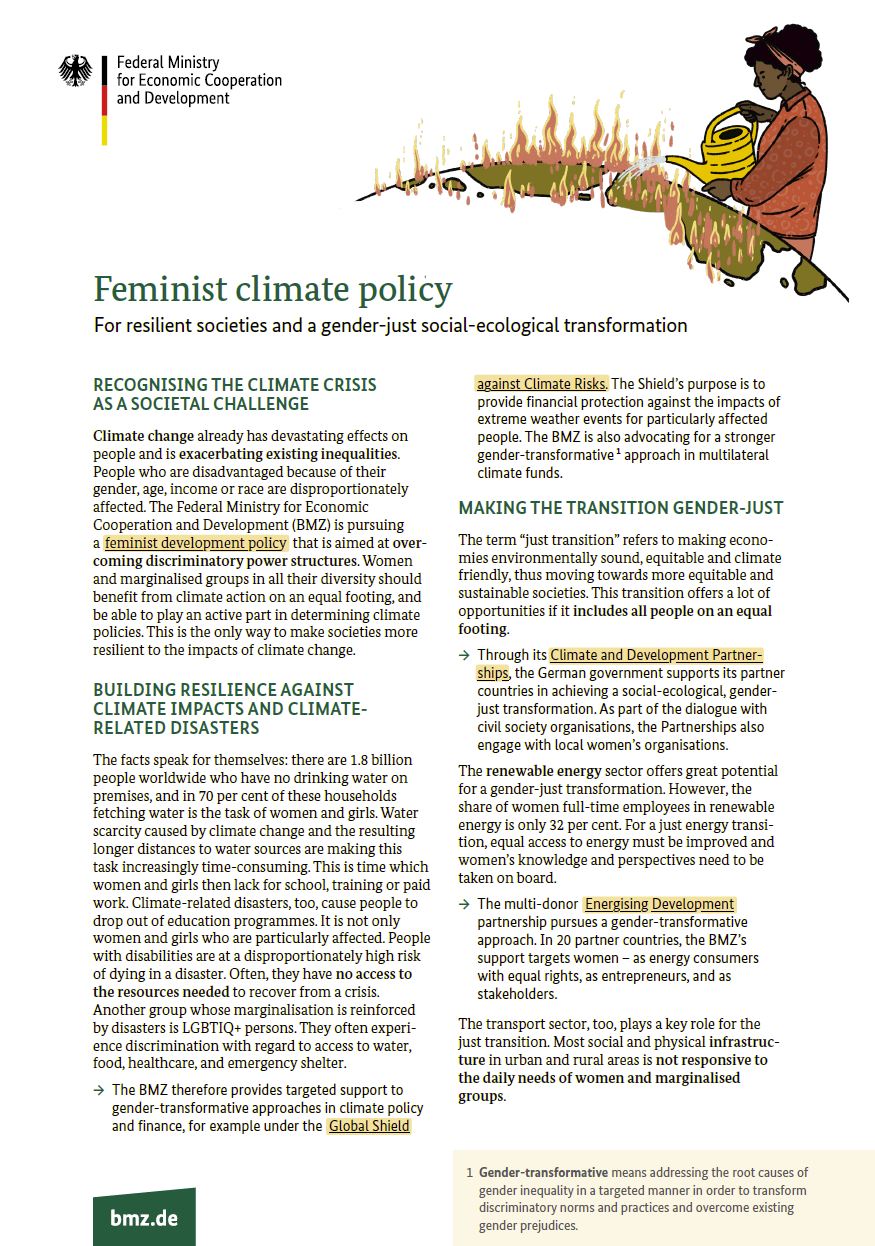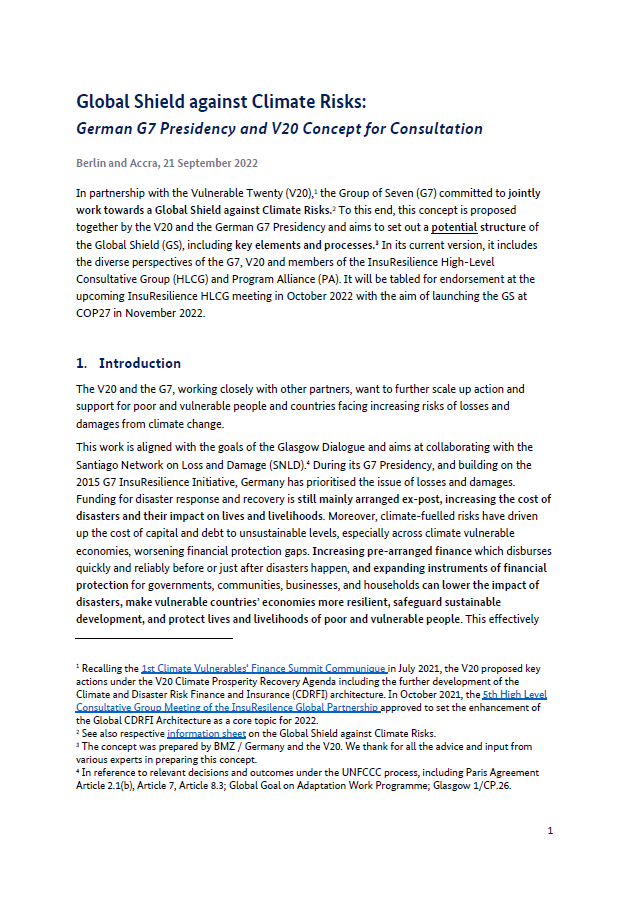Water scarcity and drought are among the serious consequences of climate change.
Copyright© Jose Antonio Alba / Water Alternatives, via flickr, CC BY-NC 2.0
Climate change and development policy
Germany is very interested in working with these countries on the joint development of climate-resilient solutions for agriculture or urban development, for example, or solutions for sustainable energy systems and the conservation of nature and natural resources. After all, climate change knows no borders. Heat waves, droughts and extreme weather events affect, above all, vulnerable population groups in our partner countries – but also people in Europe. That is why cooperation and mutual learning in areas such as technology, innovation or adaptation to climate risks are in the interest of all of us. Globally just climate policies help to create a liveable and fair world for current and future generations.
The German Development Ministry (BMZ) is working closely with its partner countries in this field. Together, we are strengthening the capacities of local people, communities and institutions to meet the challenges of climate change. This cooperation opens up new economic opportunities for all those involved, including Germany – for example through the involvement of German companies in sustainable investment, technology transfers or the development of new markets.
Many countries in the Global South are already faced with the twin challenge of striving to improve social and economic living conditions for large swathes of their populations while simultaneously responding to the increasingly noticeable impacts of climate change. At the same time, they also need to reduce emissions and achieve a just transition to a climate- and resource-friendly economy. The BMZ assists people and institutions in its partner countries in tackling this necessary transition actively and on their own terms. In this way, Germany is contributing towards the implementation of the Paris Agreement and the 2030 Agenda for Sustainable Development, both in its partner countries and nationally.
The transition to a climate-friendly future must be socially, economically and environmentally just. In the long term, climate policy will only succeed if all groups within society are able to have a say in it and benefit from it. This principle of a just social-ecological transformation is embodied in the term “just transition”. It means that no one should be left behind on the path towards a climate-neutral, resilient and socially just economic and social system. New technologies and resource-friendly business models offer opportunities for sustainable prosperity – provided that the profits are shared fairly.
COP30 | 10th - 21st November 2025 The BMZ at the World Climate Conference
From 10th November 2025, the Parties to the Framework Convention on Climate Change meet in Belém, Brazil, for the 30th Conference of the Parties (COP30 (External link)).
The German Federal Ministry for Economic Cooperation and Development (BMZ) represents the German Government on many negotiation issues and organises events at the conference together with partners.
You can visit the website of the German Pavilion (External link) to view side events and press conferences live.
What we do
As at: 28/10/2025
